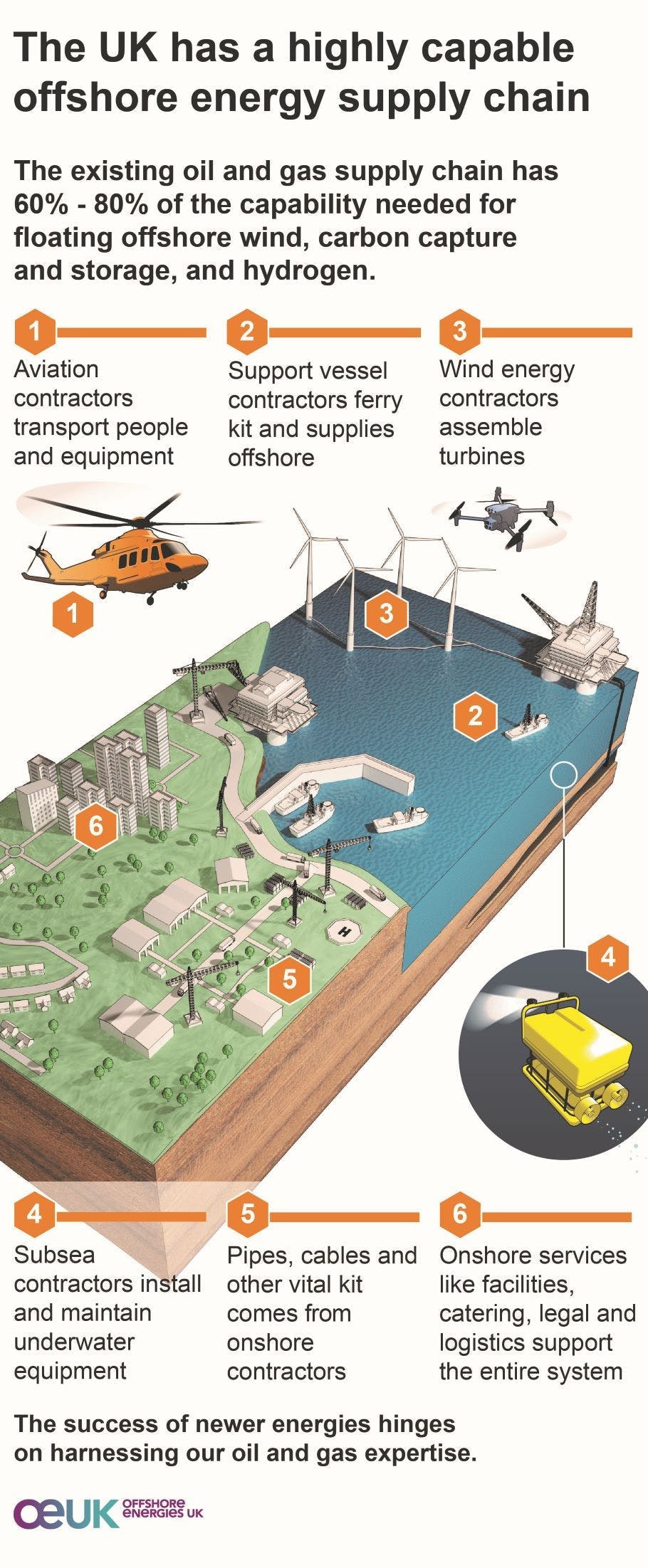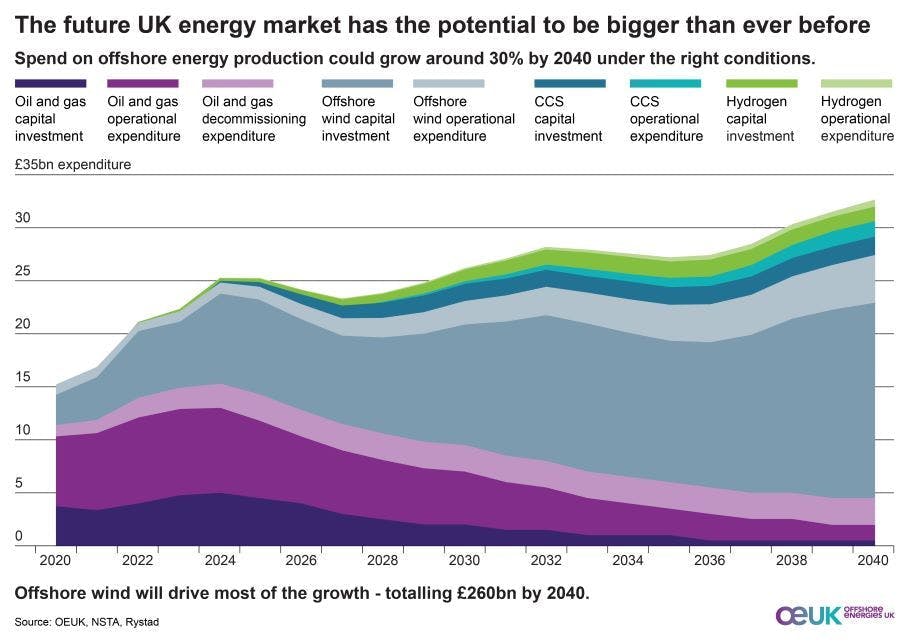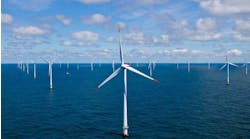OEUK urges more positive UK offshore energy policy
Offshore staff
LONDON — North Sea oil and gas projects could create £145 billion ($183 billion) of work for the UK’s supply chain, Offshore Energies UK (OEUK) reported in its 2024 Business and Supply Chain Outlook.
The association also claims that new offshore wind farms around the UK could generate a further £260 billion ($329 billion) worth of work, supplemented by new hydrogen projects (£25 billion/$31.6 billion) and carbon capture and storage (CCS) technology (£34 billion/$43 billion).
As things stand, the report said, the UK’s oil and gas supply chain has 60% to 80% of the capabilities needed to develop these new technologies, but current government policy and political rhetoric by other parties are counter-productive.
OEUK has called on policy makers to introduce supportive policies and a globally competitive tax regime in the UK.
Britain’s wholesale energy prices are down to levels previously in place before the invasion of Ukraine. OEUK has consistently stated that when the benefit of higher commodity prices to energy companies fall away, so should the government’s recently imposed windfall taxes on the sector.
The industry, it added, needs business confidence to be restored.
OEUK CEO David Whitehouse said, “Investors, firms and workers need stability, predictability and fair returns to build a low-carbon future here and keep jobs in the UK. We are in a global race for investment, and UK energy companies need supportive long-term policies, a stable tax regime and responsible rhetoric from all sides.
“Our journey to net zero and beyond depends on responsibly making the most of our oil and gas production, which is at record lows. We’re facing a situation where we must import energy that could have been produced here and where we must rely on supply chain companies that could have been based here.
“The UK’s world class oil and gas sector has reduced emissions by 24% since 2018, and we must build our low-carbon future on this achievement.”
OEUK has also commented on the UK offshore sector’s progress since signing the North Sea Transition Deal with the government in 2021; the UK’s offshore energy industry is on track and delivering strong progress on milestone projects.
The deal proposed a plan for the offshore oil and gas sector and the government to jointly deliver the skills, innovation and infrastructure needed to meet the government’s carbon reduction targets. In addition, the deal is designed to safeguard existing jobs while creating another 40,000 new jobs by 2030 in offshore wind, CCS and low-carbon hydrogen production.
Mike Tholen, OEUK’s sustainability and policy director, said, “Carbon emissions are down more than 24% compared to 2018. We expect the green light to be given to invest in the first Tranche 1 carbon capture and storage project, and 21 licenses have been awarded for offshore carbon storage.
“Electrification of North Sea offshore installations will accelerate the decarbonization of our energy supply. This is being pursued, with exclusivity agreements already awarded to 13 projects seeking INTOG (Innovation and Targeted Oil & Gas) licenses for wind generation, which will facilitate this.
“Along with developing tools to aid diversity and inclusion in leadership and recruitment practices, there’s good progress on a shared skills passport that will enable people to move seamlessly across the different types of energy opportunities offshore.”
OEUK has also set up its Supply Chain Investment Taskforce to focus on ways of attracting investment and identify where action is required to drive change.
Tholen added, “The UK’s ambition to produce 10 GW of low-carbon hydrogen by 2030 has continued at pace. A UK Hydrogen Strategy is now in place plus an Energy Act introduced by government that sets out business models for hydrogen. 2023 saw the government award funding to 11 successful electrolytic hydrogen projects under its first hydrogen allocation round, more than has been achieved anywhere in Europe…
“With an upcoming general election and re-focus of business priorities, it is more important than ever to use the deal as a springboard to ensure energy security. OEUK’s priority will be to ensure our industry holds steady on its course to become a leading green industrial power, offering high-quality employment for a skilled workforce driving strong economic growth.”
To date, according to OEUK, the industry has achieved a 24% reduction in total greenhouse-gas emissions in the UK North Sea area since 2018, and a 45% reduction in methane emissions.
A study to assess how the industry will meet decarbonization targets also started earlier this year. Its remit will include the role that technology can provide in delivering current and future decarbonization solutions that are not limited to electrification.
Publication of an industry decarbonization report should follow in late April.
03.26.2024





